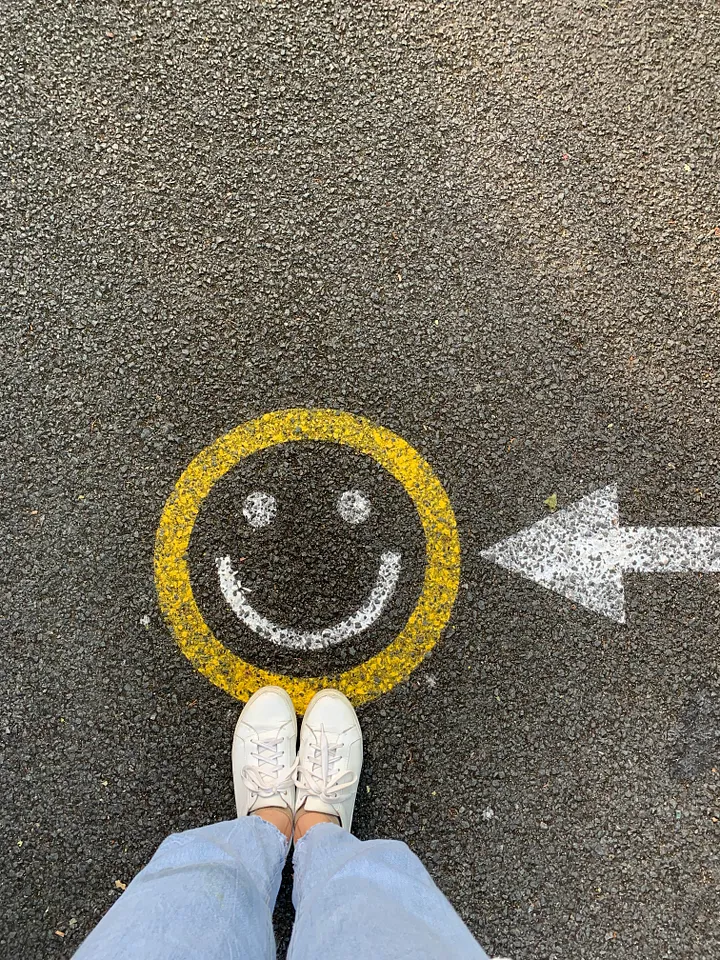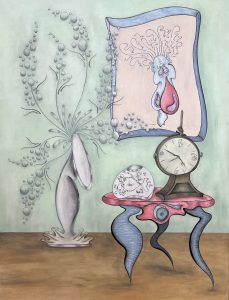The basic tenets of happiness
“I’m never happy.” My new client looked around the office, then cast her eyes down to the tabletop. “Never. Nothing works. I go out with friends. I go to parties. I buy myself new clothes. I travel. It all fades.”
This is something I hear from almost every coaching client and, I suspect, it is the disease of our generation. We have these expectations of what life is “supposed to be,” of what we are “supposed” to achieve. We look around, wondering what we are doing wrong, holding onto little moments of joy that pass too quickly. And we ask: “Is this all there is?”
Recently, a dear friend and coaching client commented that I’m the happiest, most positive and “up” person she has ever known. She said: “You always think positively–and think the best of people. You always have a solution and smile even through the worst of days. How the hell do you do that?”
I, of course, smiled.
Anyone who knows me knows that my life has not been easy–and that I have suffered emotional and financial ruin several times. Several.
So how do I keep smiling?
When I was a baby, I suffered an infection that caused me to run very high fevers and seizures. Luckily, I had attentive parents who literally saved me during a seizure and rushed me to the hospital. There, I remained for a significant amount of time recovering from the infection which had settled at the top of my spine (or so I am told).
I am also told that no matter how high my fever became or how sick I was, I would stand in my crib and smile at the nurses: “She’s the happiest baby.”
And I was.
Happiness is a choice.
Happiness is not something that happens to you, it is something you make happen for you. Positive psychologists have demonstrated this precept again and again.
LOSING THE HAPPINESS GAME
And you tell yourself: “I will be happy when _______.” Insert:
- I get that raise.
- I buy that new car.
- I fix my marriage.
- I double my profits.
- I lose those 30 pounds.
Except that is not how happiness works.
Neuroscience has shown once we have that thing or reach that goal, we do not feel happy–we look for the next thing that will make us happy. Don’t deny it; we all do it! And science shows that those people who are happy achieve more success and joy than those who “seek” happiness.
Want to be happy? Just freaking decide to be happy. Barring a chemical imbalance, which can be verified by a physician, happiness is that easy.
Think that sounds like something from a snake oil salesman? Well… it’s not. We know that on what we focus is what we become. If you focus on lack and wanting, that is what you will get. If you focus on your power and your goal, that is what you will get.
The key is to live in the now–savoring each moment and being grateful for each moment. For this month, each time you are feeling “unhappy” or “stressed” or “down” or “angry”–any negative emotion–try to take a moment to just be present. Notice negative thoughts arise from consideration of the past or future. Try to diary your negative emotions. When do they arise? What is your trigger? Also, diary your positive emotions–and notice those, too, arise typically from consideration of the past or the future. This is where you can become powerful over your emotional state.
PRESENT-FOCUSED
For your next assignment, we will shift your thinking to the present. Answer which statement is true:
1. Happiness is the result of reaching goals.
2. Happiness is the precursor to reaching goals.
You might be surprised to learn that happiness is the precursor to reaching goals! Reaching a goal–getting the great job, buying your dream home, getting that new cell phone, getting in shape–all feel good, for the moment. But the happiness fades and we seek a new goal for the rush of accomplishment–always leaving happiness in the future. Think about it: You so wanted “X”–and then you got it and sought the next thing to want. We are always searching for the thing that will “make us happy.”
The science shows that working towards a goal provides lasting happiness (explaining why retirement can be so depressing…). The science also shows that our brains are literally hard-wired to perform their best when they are positive–when we are already happy and in a positive state!
I hear you: “Great. So I have to force myself to be happy? How the heck do I do that??? I don’t feel happy.”
LOOK AT IT DIFFERENTLY
Happiness is a subjective state based on how we feel about our own lives. It really is the mental construction or definition of our own activities — the way we define our reality. Anyone who has seen The Twilight Zone episode “Kick the Can” understands this concept. Science has shown that our interpretation creates our emotional experience. Our emotions do not create our experience–it’s the other way around — our experience creates our emotions!
For illustration, try the following exercise:
You enter a bank and about 30 people are there, including customers with their children, the tellers and the staff. A minute after you enter, a robber walks in and fires his weapon once before being subdued by a security guard. You are shot in the right arm.
Are you lucky or unlucky?
If you see the incident as lucky — I was only injured in the arm, no one else was injured, no child was harmed, the assailant was caught — then you are a positive, glass half full person.
If you found the incident unlucky, well, we have some work to do!
THE HAPPINESS FORMULA
Positive psychologists have calculated the exact elements for happiness: “The Happiness Formula.” No, it’s not a complicated mathematical equation filled with symbols that will make you recall algebra… no worries. It’s a simple idea made famous by the father of positive psychology, Martin Seligman:
Happiness = S (your genetic set-point) + C (your circumstances) + V (your voluntary control).
S, your genetic set-point, is how happy a person you are at birth — the chemistry and brain structure that dictates how happy you are naturally. People who consider themselves “unlucky” in the bank robbery are those at a lower genetic set-point, seeing the negative in every situation. People who consider themselves “lucky” have a higher genetic set-point, seeing the positive in every situation. Recognizing how you naturally interpret situations goes a long way in shifting your “happiness total.” Working with a coach or therapist is the key to shifting that set point.
C are your circumstances — the state of your life. The belief has been that circumstance was the key to happiness–but scientists have discovered very few circumstances increase our happiness. Living in a wealthy democracy and having a strong social network are the only two factors that can have a major impact. Others, like being rich, being healthy, being educated or being a certain race, have little to no effect on long-term happiness.
So, being in the United States (arguably) and having lots of friends and loved ones are major factors. Otherwise, trying to “be” happy by doing things and achieving and buying stuff is not going to do anything!
Here’s the kicker: V–the aspects in our voluntary control–is the key to being and staying happy because it is the one factor we can actively and assertively change–and it has the strongest impact.
APPLYING THE HAPPINESS FORMULA
Let’s talk about Jean to see how this works.
Jean, has an average genetic set-point (S), wants to be happy, and arises each morning listing all the things she can do to make herself happy. She will go shopping and get those shoes she wants. She looks forward to that promotion at work. She will entice her husband with a romantic dinner. She will make cookies for the kids. Lots of ways to make herself happy.
Then, she gets on the scale and discovers she has gained three pounds. And her hair just won’t do what she wants. She was never very pretty… that’s what her father told her. Then, an unexpected bill comes in the mail–and now she does not have the money in the budget for the shoes. She checks her investments online. More bad news. She angrily drives to the office, finding out her boss gave the promotion to that jerk in accounting. Just like at her last job, she gets passed over. All the things that would have made her happy did not happen. She doesn’t feel like making the damn cookies or the romantic dinner, instead ruminating on her crappy day while she makes leftovers. She yells at the kids and feels guilty. She can’t help thinking if she had only taken those accounting courses in college she would get promoted, but she did not have the money to take those courses. And she is too stupid, anyway. She goes to bed hoping tomorrow will be a better day.
Like most of us, Jean is relying on one variable of the equation: C, circumstance. But we can change Jean’s day and Jean’s life. We can change your life.
Shift your focus from circumstance to V — the aspects of your level of happiness which are in your voluntary control — is the scientifically proven key to maintaining happiness.
That V is composed of: (1) The way you interpret your past, (2) The way you live your present, and (3) The way you see your future. Basically, V is how you gauge your reality. What in your past still bothers you or affects your current behavior or choices? How do you characterize your present? What dictates how you view your future?
See the difference in how a person interprets the bank assailant incident can set the tone?
In my next article, we will look at the second aspect of V: How you live in the present. I’ll be showing you how to evaluate and use your basic human needs to skyrocket your perception of life — and your happiness.



